Table of Contents
Quality Service Guarantee Or Painting Free

Get a rental agreement with doorstep delivery

Find the BEST deals and get unbelievable DISCOUNTS directly from builders!

5-Star rated painters, premium paints and services at the BEST PRICES!
Loved what you read? Share it with others!
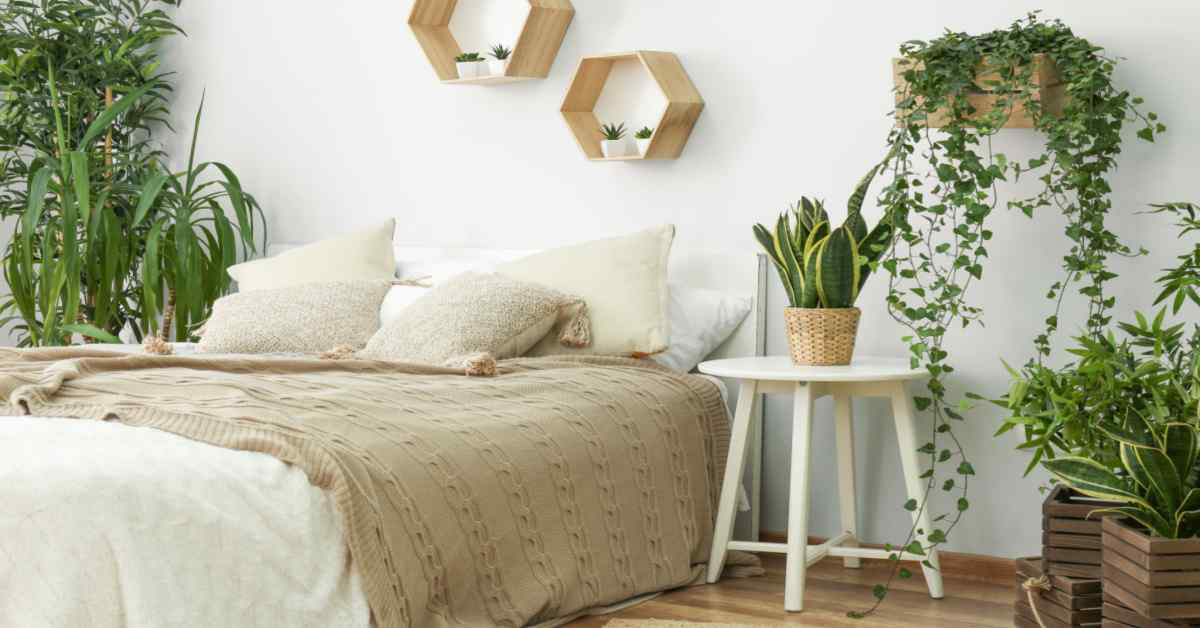

Submit the Form to Unlock the Best Deals Today
Check Your Eligibility Instantly

Experience The NoBrokerHood Difference!
Set up a demo for the entire community
How to Select the Best Indoor Plants for the Bedroom
Table of Contents
Many of us are unaware of how crucial air quality is. Toxins like formaldehyde and benzene are frequently released into our indoor air by the insulation, paint, and furniture in our homes. Think about including plants in your home to help purify the air. By filtering and purifying the air you breathe every day, the best indoor plants for bedrooms can absorb harmful gases through the pores in their leaves. Bedroom plants are capable of more than just enhancing the brightness of your shelves. Additionally, they can improve your mood, increase your creativity, lower your stress levels, boost your productivity, filter air pollutants naturally, and do a lot more. Keeping all these points in mind, let’s take a look at the best indoor plants for the bedroom and how to select the best bedroom plants for your home in 2023:
How to Choose the Best Plants for a Bedroom:
A little bit of greenery can change a place and give it new life. One of the simplest ways to modernise your home without shelling out a fortune on new furniture or exorbitant décor accents is to simply paint it. But because they are not all made the same, houseplants won't all thrive in the same conditions.
You should consider both plant maintenance and the aesthetic of your home when selecting a plant for a particular area of your house. You won't want to place an air plant in your sun-drenched living room when it prefers indirect light or a plant that requires full sun in a windowless bathroom. Different houseplants have different requirements for humidity levels and sun exposure. Furthermore, you don't want an indoor plant to dominate a room's design by standing out like a sore thumb. In a peaceful bedroom, a cactus? That's not exactly what peace and tranquilly mean.
Quality Service Guarantee Or Painting Free

Get a rental agreement with doorstep delivery

Find the BEST deals and get unbelievable DISCOUNTS directly from builders!

5-Star rated painters, premium paints and services at the BEST PRICES!
Fortunately, there are numerous varieties of indoor plants to match any home or interior design scheme. For those who frequently travel or simply lack the time to maintain something on a daily basis, there is good news: The majority of these suggested plants are low-maintenance and only need weekly or monthly watering. Have a look at our exclusive list of the best Indoor Plants for Bedrooms in India.
1. Snake Plant
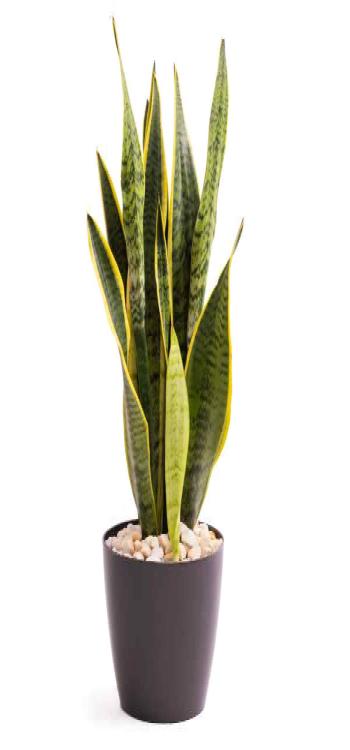
Bedroom Advantage: filters the air inside buildings both day and night.
Care Advice: Bright indirect light; occasionally some water
The snake plant, Sansevieria trifasciata, is a sculptural, vigorous specimen that purifies air better than almost any other houseplant. It is also known, somewhat ironically, as mother-in-law's tongue. The Sansevieria plant has evolved leathery, strappy leaves to withstand the harsh climate and unpredictable rainfall of West Africa.
The snake plant only needs to be watered once every two weeks; you don't have to deal with messy dropped leaves or challenging pruning. As the snake plant will rot in standing water, make sure the container it is planted in has sufficient drainage holes.
2. Peace Lily
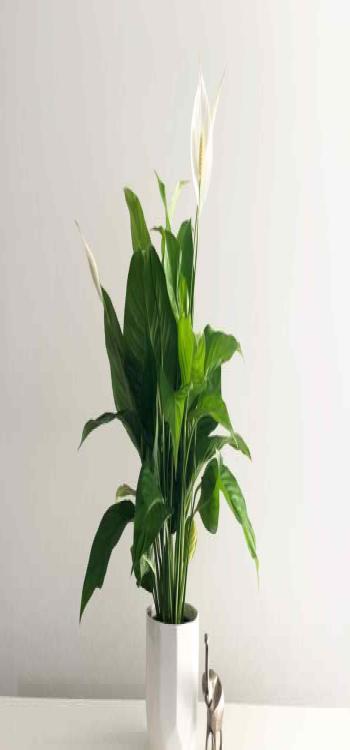
Bedroom Advantage: Air purifier that can also absorb acetone vapours.
Care Advice: Moderate to strong indirect lighting; frequent watering
One of the most resilient and well-liked houseplants for a bedroom is the peace lily (Spathiphyllum), and for good reason: their glossy leaves thrive in high- or low-light conditions, and its roots can withstand a variety of irrigation practises. Peace lilies eliminate the guesswork associated with watering because they wilt when dehydrated and recover quickly after a drink of water.
If your bedroom has a window, placing the peace lily close by will increase the growth of its long-lasting, white flower-like spathes. Choose a peace lily variety like "Domino" with its white variegated foliage to brighten low-light environments if your room is somewhat dark and blooming seems improbable.
3. Parlour Palms
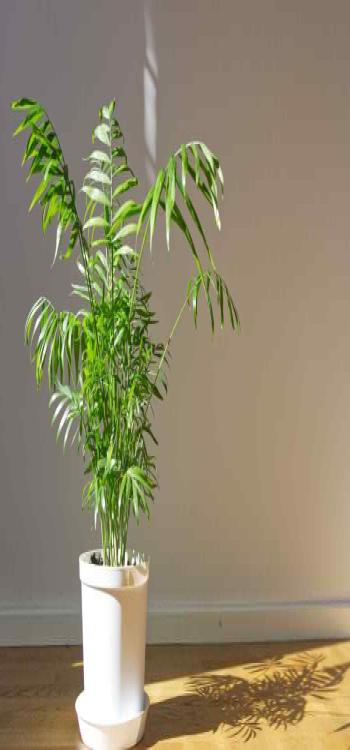
The parlour palm (Chamaedorea elegans), which grows in partial to full shade in its native Guatemala, is why you'll find these specimens flourishing in buildings with little to no natural light, like offices, malls, and other indoor areas. The parlour palm should not be kept in the bedroom near bright windows because excessive light will burn the leaves. Because it will prevent pests, such as spider mites, that thrive in dry conditions, from proliferating, a location close to a steamy bathroom that provides increased humidity is ideal.
4. Gerber Daisy

Among most people, the Gerber daisy (Gerbera) is an angelic plant. This native of South Africa won't tolerate low light or insufficient water like a snake plant or philodendron would. The Gerber daisy is temporary eye candy that you will eventually have to discard, similar to how you might think of a very long-lasting cut flower arrangement.
In greenhouse environments, gerber daisies receive care and attention that simply cannot be matched in a typical bedroom. To have a plant with such perfect, vibrant blooms, however, bring its cheer to your bedside table, it's worth ₹200. It will even be very effective at removing traces of organic pollutants from the air while it lasts.
5. Corn Plant
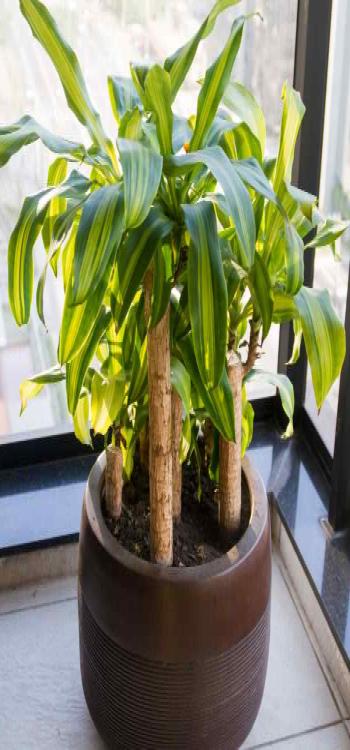
It has been demonstrated that a variety of dracaena species can clean and purify the air. All of them are straightforward to grow plants with long, strappy leaves, some of which have lovely red markings. Uncertain which type to try? Try to find "Janet Craig," "Tricolor," or "Masangeana" (also known as "Corn Plant").
Corn plants (Dracaena fragrans) offer homeowners the appearance of a tree without the tree's unmanageable height issues. Strong trunks are covered in long, glossy leaves. Because of their size, corn plants make for a sturdy anchor in a bedroom corner. When placed in a sunny area, corn plants can tolerate some shade and even bloom with white flowers.
Despite what its name might imply, the corn plant is poisonous, so it should not be kept near animals that like to nip at things or young children who like to explore things with their mouths.
6. Aloe Vera

Aloe Vera is a plant that releases oxygen at night, making it ideal for your sleeping environment and one of NASA's top air-purifying plants. Because it can tolerate neglect, making it one of the easiest plants to care for, it can go three weeks without water and still thrive. These succulent plants are also well-known for their therapeutic properties; topically applied leaf juice can be used to treat burns and scrapes. Aloe vera plants (Aloe barbadensis) need a bright area in the bedroom, but their fleshy leaves don't care if you don't water them for a few weeks. You can harvest the offsets that these succulent plants produce to grow new plants. If you cut off the leaves of these new plants to harvest their healing gel for cuts, you can use them as replacements. Aloe vera plants (Aloe barbadensis) need a bright area in the bedroom, but their fleshy leaves don't care if you don't water them for a few weeks. You can harvest the offsets that these succulent plants produce to grow new plants. If you remove the leaves to harvest the healing gel for cuts and sunburns, these new plants can be used as replacements.
7. Spider Plant
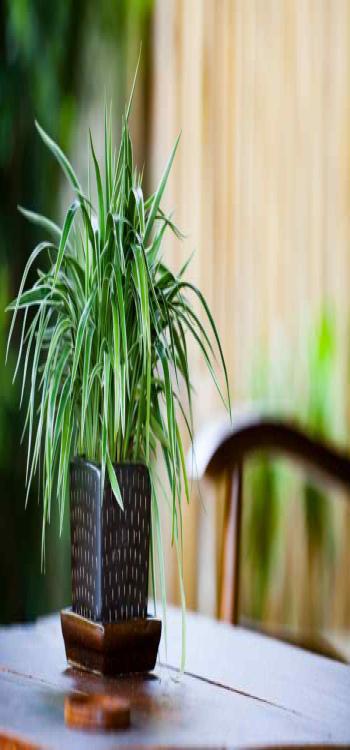
Let the Spider Plant's (Chlorophytum comosum) personality bring some fun and fresh air into your bedroom. The spider plant, also known as the aeroplane plant, is well-known for its capacity to sprout numerous "pups" on stems that dangle from the mother plant. These baby plants can be used in other rooms or left in their current location after being clipped and repotted.
Spider plants thrive in a variety of lighting situations with average moisture levels. Collect rainwater to water your spider plants if you notice browning leaf tips because they are sensitive to fluoride in tap water.
8. Philodendrons

For those looking for a fuss-free indoor bedroom plant, traditional philodendrons are just as popular today as they were back in the 1970s. They enjoy both stealing the show as a trellised specimen and trailing from a hanging basket in the corner. Although philodendrons can tolerate a variety of lighting, if the environment is too dark, they may grow lanky. When it comes to irrigation, less is more, and if you decide to propagate additional plants for a collection, you can simply root new plants in a vase of water.
9. Fiddle Leaf Fig
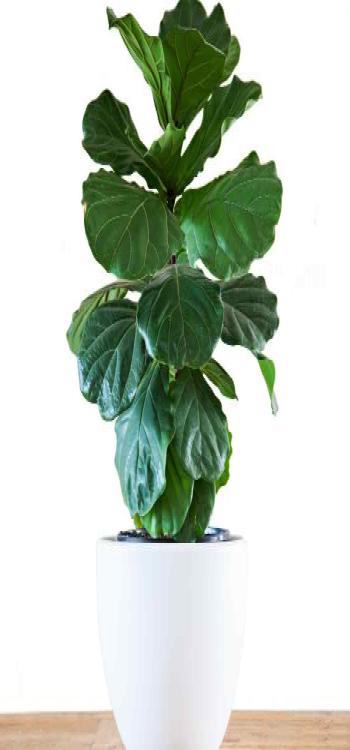
Given how frequently it appears in home magazines, television shows, and blogs, the fiddle leaf fig (Ficus lyrata) is one of the most popular houseplants right now. The right lighting is crucial to keeping your plant lush in a bedroom setting because its large leaves are its focal point.
The shady understory of the jungle is ideal for fiddle leaf figs, but indirect light from an east-facing window also promotes their growth. To increase the humidity around the plant, place your fiddle leaf fig on a plate of pebbles with water in it. In conclusion, the fiddle leaf fig prefers everything in moderation, including temperature, water, and light. Your plant will struggle if there is an imbalance between these components.
10. English Ivy
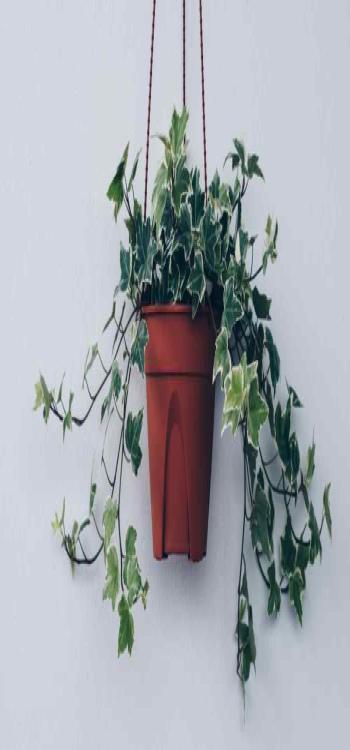
The trailing vines of English ivy look attractive in hanging baskets or draped over a side table and thrive in all light conditions. Plants require little watering and can easily make it through a week-long vacation.
Does Having Plants in Your Room Help?
Keeping plants in bedrooms can have many benefits, such as improving air quality, reducing stress, promoting relaxation, and improving aesthetics. Plants also release oxygen at night, creating a more comfortable sleeping environment. However, it is important to consider factors such as the type of plant and its specific care requirements, as well as any potential allergies before introducing plants to your bedroom. Overall, keeping plants in bedrooms can be a great way to improve overall well-being and make a more comfortable and attractive space.
Benefits of Indoor Plants in Bedrooms
Indoor plants have been shown to have a variety of benefits, both for our physical and mental well-being. When placed in the bedroom, these benefits can be especially pronounced.
One of the biggest benefits of indoor plants in the bedroom is their ability to improve air quality. Plants naturally purify the air by absorbing pollutants through their leaves and roots. This can help to reduce the levels of indoor air pollution, which can be especially beneficial for people with allergies or respiratory problems.
In addition to improving air quality, indoor plants can also help to reduce stress and promote relaxation. Studies have shown that simply viewing plants can lower blood pressure, decrease anxiety, and improve overall mood. The presence of plants in the bedroom can also help to promote better sleep, as they release oxygen at night and absorb carbon dioxide, creating a more comfortable sleeping environment.
Indoor plants can also help to improve the overall aesthetics of a bedroom. Not only do they add a touch of greenery, but they can also be used to add color, texture, and visual interest to a space. They can be used to create a focal point, or to complement existing decor.
Finally, indoor plants can be a great addition to the bedroom for their easy maintenance and low cost. Many indoor plants are easy to care for, and can thrive with minimal sunlight and water. And compared to other decor options, indoor plants are relatively inexpensive.
In conclusion, Indoor plants can provide many benefits when placed in the bedroom. They can improve air quality, reduce stress, promote relaxation, improve aesthetics, and are easy to maintain. So, adding a few indoor plants to your bedroom can be a simple and effective way to improve your overall well-being.
Best Indoor Plant for Bedrooms
Still wondering which plant is good for bedrooms? There are several plants that can improve air quality and promote better sleep in the bedroom. Some popular bedroom friendly plants include:
- Snake Plant: Known for its air-purifying properties, this plant is easy to care for and can thrive in low light conditions.
- Spider Plant: Another air-purifying plant for the bedroom to clean air, the spider plant is also known for its ability to remove pollutants such as formaldehyde and xylene from the air.
- Aloe Vera: This succulent is not only known for its healing properties but also for its ability to release oxygen at night, making it a great option for the bedroom.
- English Ivy: This plant is known to be effective at removing pollutants such as formaldehyde, benzene, and carbon monoxide from the air.
- Peace Lily: Not only does it remove pollutants, but also it blooms beautiful flowers and prefers low light.
In general, it's recommended to avoid plants with strong fragrances, as they can disrupt sleep. Also, make sure to keep plants out of reach of pets and small children, as some plants may be toxic if ingested.
Decorate Your Home with Best Indoor Plants for Bedroom with NoBroker
Numerous studies from all over the world have shown that interacting with plants before bed can enhance sleep quality for people who live in single settings, including deep spaces. Apart from being aesthetically pleasing to the eye, these indoor plants for bedrooms can provide numerous health and Vastu benefits. Want to get these lucky plants for the bedroom? Get in touch with us today. Our interior designing professionals will help you decorate your bedroom with the best plants to keep the bedroom. Transform your space today with NoBroker interior designers.

FAQ’s
Ans. If a plant's leaves are pale, don't buy them. Avoid plants with leaves that are yellowing or turning brown, or if the edges of the leaves appear brown and dried. Having a full, bushy growth habit is a sign of a healthy plant. Choose compact, sturdy plants rather than long, leggy ones.
Ans. Before choosing a specific plant for a specific location, you must take into account the temperature, sunlight, humidity, space, and any pets or kids that may come into contact with your plant. Look for vents close to windows and doors. Plants can become stressed and harmed by extreme temperature fluctuations.
Ans. Money plant, as their name implies, attracts wealth, which is a very significant advantage. According to Vastu, it wards off bad energy to make room for good energy. According to Vaastu experts, keeping a money plant in the bedroom can help remove obstacles to money and bring luck and prosperity.
Ans. The amount of oxygen in interior spaces can be raised by adding plants. Plants typically respire like humans at night when photosynthesis stops, taking in oxygen and exhaling carbon dioxide. Orchids, succulents, and epiphytic bromeliads are a few plants that do the exact opposite, absorbing carbon dioxide and exhaling oxygen.
Ans. No. Although a lot of houseplant species tend to release more carbon dioxide at night than oxygen, the amounts are frequently insufficient to worsen sleep apnea or cause breathing problems.
Recommended Reading

Luxury Bedroom Interior Design: Transform Your Space with Elegance in 2025
February 19, 2025
5274+ views
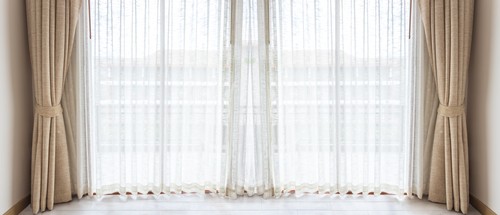
5 Tips on How to Choose Curtains 2025
January 31, 2025
2784+ views
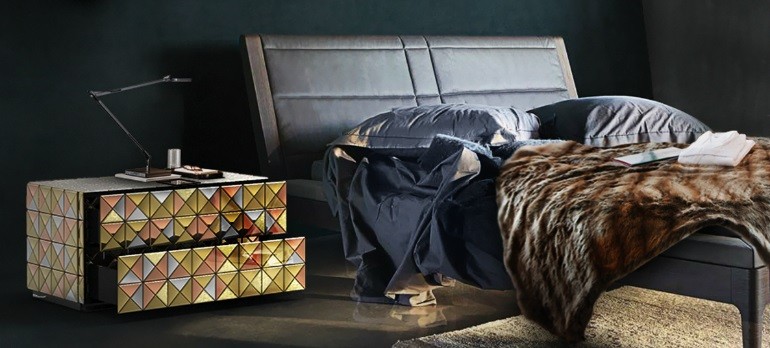
Best Bedside Tables Ideas For a Classy Look
January 31, 2025
2593+ views
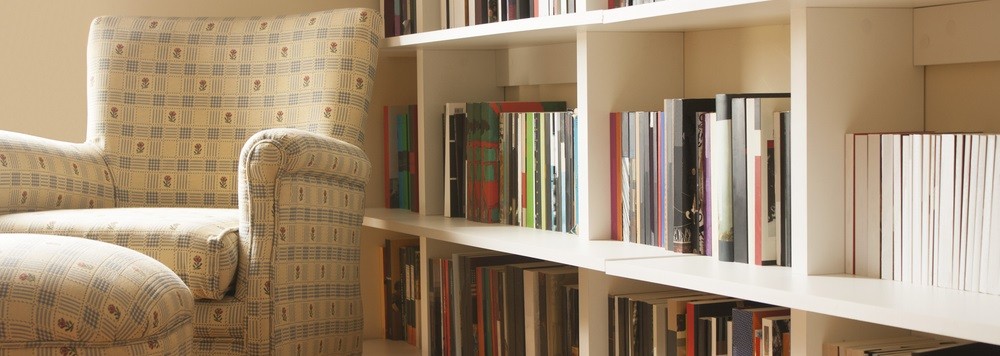
How to Create the Perfect Reading Nook
January 31, 2025
2375+ views
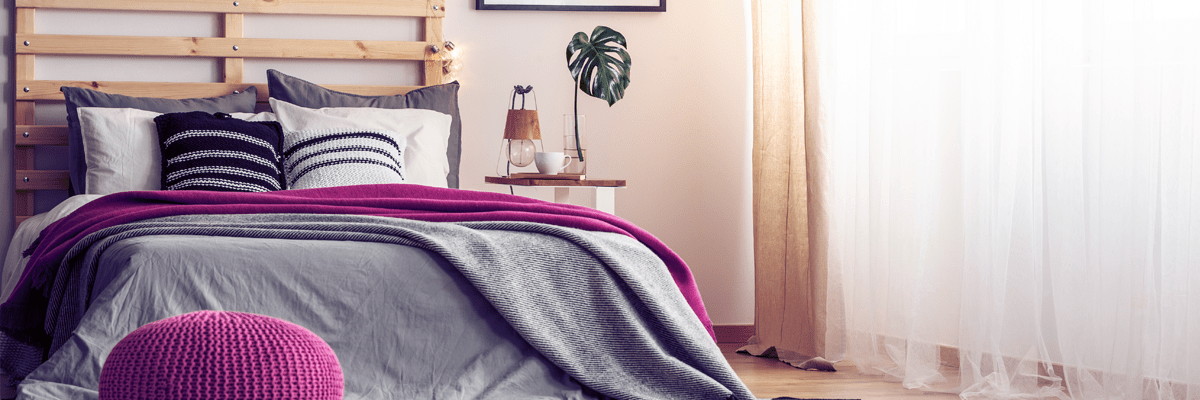
Top Designers Share 15 Best Design Tips for Your Bedrooms
January 31, 2025
3206+ views
Loved what you read? Share it with others!
NoBroker Interiors Design Testimonials
Most Viewed Articles
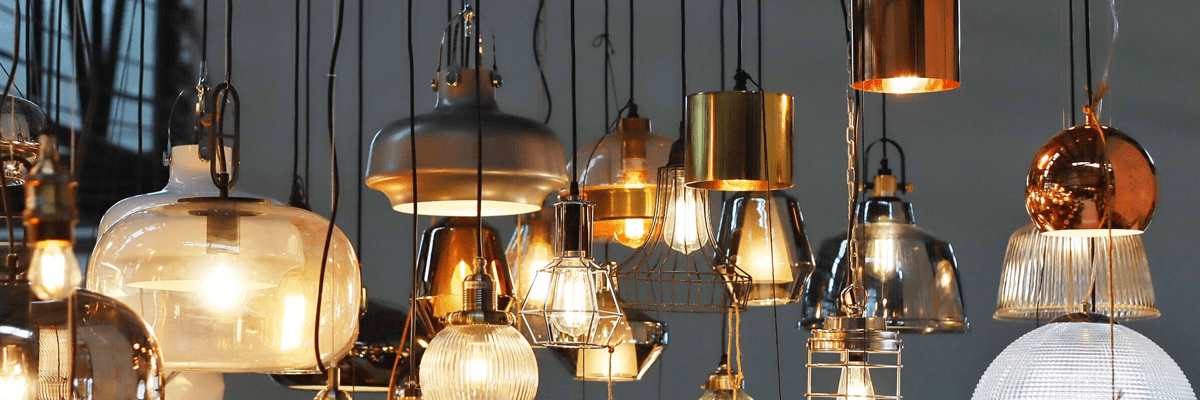
Top Hanging Light Ideas to Illuminate Your House
January 31, 2025
393844+ views

GFRG Panels - A New Technology in Building Construction
January 31, 2025
258461+ views
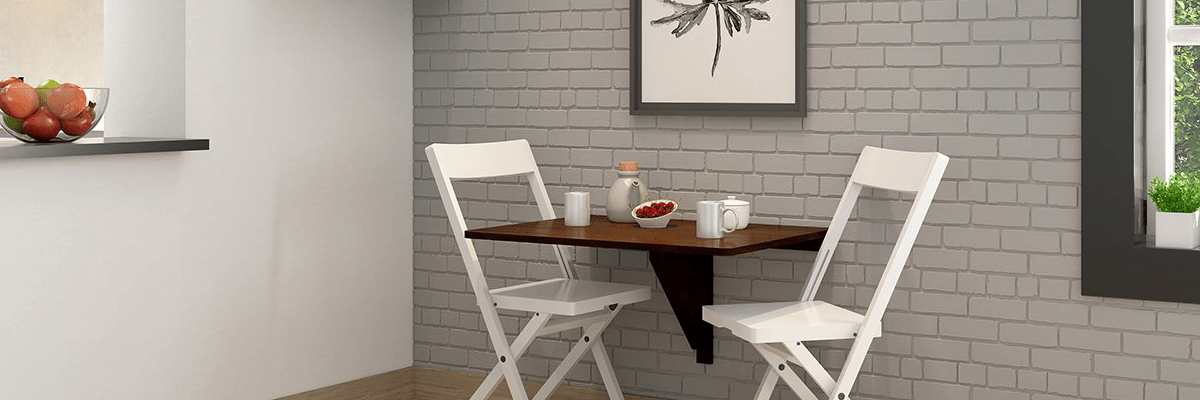
15 Wall-Mounted Dining Table Design Ideas
January 31, 2025
104274+ views

How Mivan Construction Technology Is Transforming the Art of Building!
January 31, 2025
75431+ views

Best 3 Bedroom House Plan: Modern and Space-Efficient Layouts for 2025
January 31, 2025
43686+ views
Recent blogs in
Luxury Bedroom Interior Design: Transform Your Space with Elegance in 2025
February 19, 2025 by Simon Ghosh
February 14, 2025 by Rahul Sahani
30 Best Living Room Modern Interior Design Ideas for Your Modern Living Space 2025
February 7, 2025 by Priyanka Saha





Join the conversation!